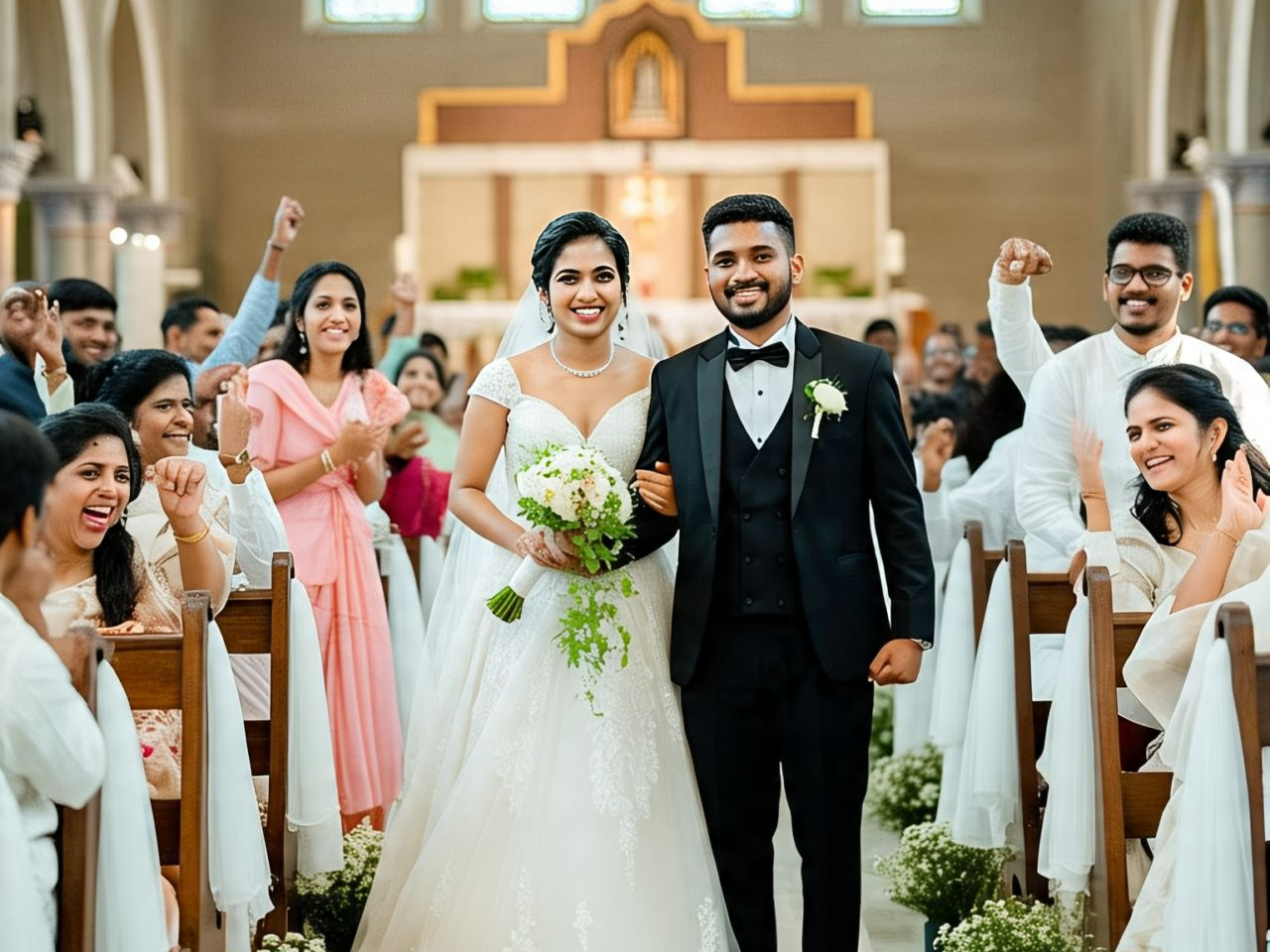Chennai44 minutes ago
- Copy link

Photo meta AI is generated.
The Madras High Court recently said that when a person is ready to get married under the Indian Christian Marriage Act, that person will be considered Christian since marriage. That is, it will be believed that he has given up his original religion.
The court also said that if a person adopts Christianity, then he cannot keep the status of Scheduled Castes (SC) and cannot claim the benefits of reservation. Justice L Victoria Gauri said this, disqualifying the current president of Therur Nagar Panchayat of Kanyakumari.
In fact, Amutha Rani, who was originally from the Scheduled Castes, married a Christian person in 2005, despite this she contested and won the post of Therur Nagar Panchayat President reserved for Scheduled Castes in 2022.
DMK member V. Ayyappan filed a petition challenging Amutha’s merit. In which it was said that after conversion she was not eligible for reservation of Scheduled Castes.
Court said- The original religion automatically changes after marriage
Justice L. of Madras High Court Victoria Gowri found that Amutha Rani adopted Christianity in 2005. They were married under the Indian Christian Marriage Act 1872. The court also said that the status of Scheduled Castes is only given to the followers of Hindu, Sikh or Buddhism. Therefore, after adopting Christianity, Amutha Rani was not eligible for reservation of Scheduled Castes.
Justice Gauri said- If a person wants to marry a person of another religion while maintaining his ethnic identity, he should marry under the ‘Special Marriage Act, 1954’, not under the Indian Christian Marriage Act like any religion-specific marriage Act.
Case related to reservation after changing religion also came in Andhra Pradesh
A person named Akkala Rami Reddi, who lives in Kothpalem in Guntur district, had filed a petition in the Andhra High Court in one such case. Akkala was alleged by a Hindu -turned -Christian man, that he had abused casteist. During the hearing, Justice N Harinath had said that when Chintada himself had told that he has been following Christianity for the last 10 years, the police should not have imposed the SC/ST Act on the accused.
Given the bench that the complainant Abhinada misused the SC/ST Act, the case against the accused Reddy and others had canceled the case.
The court had said that if a person belongs to the Scheduled Castes (SC) community, and the religion changes, then his SC status ends.
What is the provision in the constitution
According to the Constitution (Scheduled Castes) Order, 1950, only the Scheduled Caste communities of Hindu, Sikh and Buddhism have SC status. If someone adopts Christian or Muslim religion, then this status ends.
The Andhra Pradesh Legislative Assembly also passed a resolution in March 2023, requesting the Central Government to also provide SC status to Dalits who have adopted Christianity.
Supreme Court had said- changing religion to take advantage of reservation, cheating from constitution
Some time ago, the Supreme Court also clarified in a case that if a person returns to Hinduism again after adopting Christianity, he would need reliable evidence and community approval to get SC status. The Supreme Court termed the conversion with the aim of achieving only benefits.